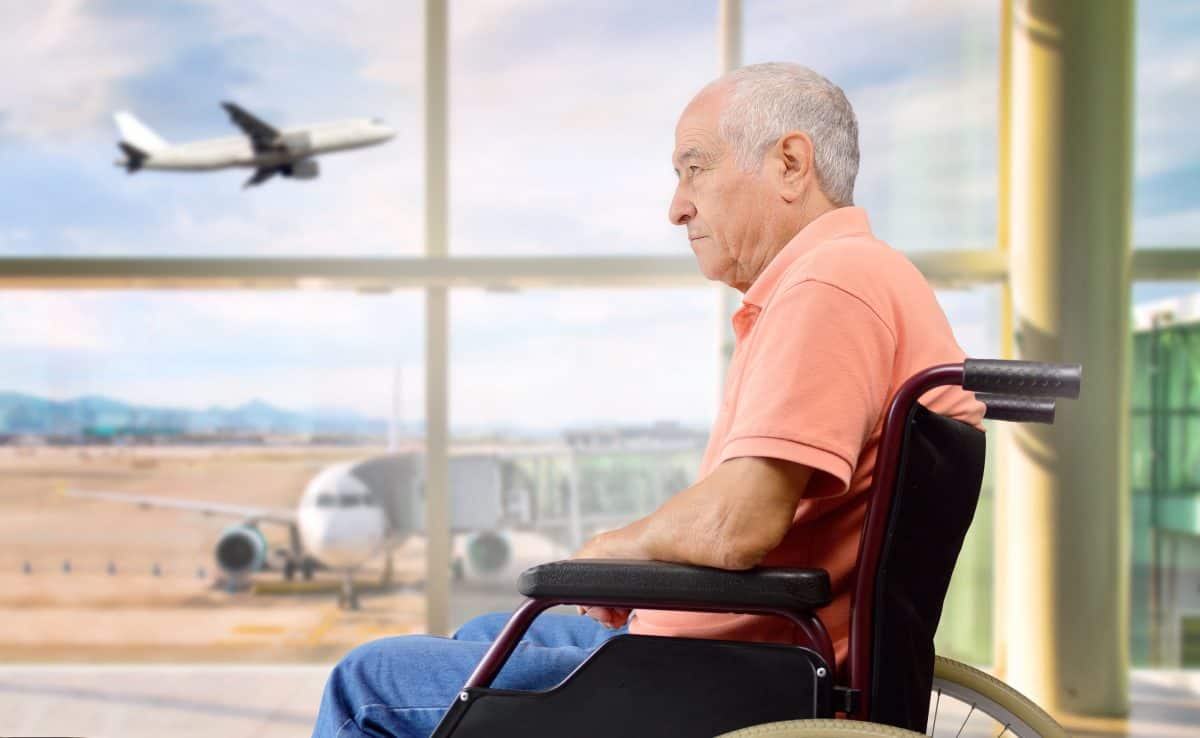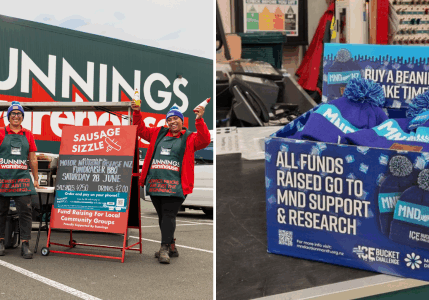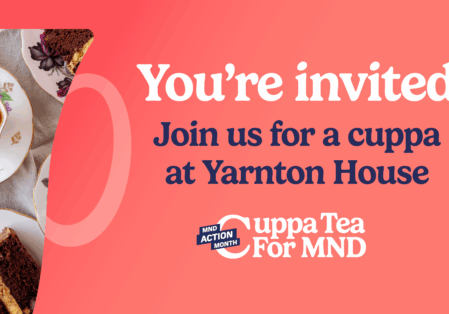Solo travel: A personal story
Living with MND, Personal Stories
19 September 2018

This report comes from an experienced traveller who has been affected by MND for a number of years, yet has travelled solo, with his motorised wheelchair from the UK to Japan, North America, Europe and Australasia.
Travelling alone, while having advanced MND, and flying long distances is perfectly possible given a bit of thought and preplanning. Obviously, it would be a great help if someone can travel with you from door-to-door, but we don’t often have the resources to finance an ideal situation.
You should declare your personal circumstances with your chosen airline at the time of booking to ensure that there are no unexpected barriers to a successful journey. Many airlines are unwilling to accept solo passengers who are unable to fasten their own seatbelt, leave their seat or evacuate an aircraft unaided, and may insist that such passengers are accompanied by someone who can help them. Similar restrictions may apply for passengers who need help with breathing, feeding, using the toilet or medication.
Someone who hasn’t developed bulbar symptoms has a great advantage over those who have, they can ask for help and directions. Those who have speech problems might need to prepare some anticipatory cards in advance of their journey and carry a means of communication.
For any independent travel the journey breaks down into either three or four components:
- Getting from home to the airport, complete with luggage
- Making the flight itself
- Transfers, if the flight is not direct
- Getting from the airport to the final destination.
Friends or family can deal with the home end of the journey and likewise, the people you are visiting or holidaying with can deal with the other end of the journey. The tricky bit could be the actual flights and transfers in between.
With a bit of preplanning and consultation, airlines are actually very helpful for those who are disabled and they will be able to facilitate transfers, including handling the luggage. Normally you should give the airline as much notice of this need as you can, and can ask for pre-booked assistance to be listed on the ticket or itinerary. You should contact the airline at the airport 48 hours prior to departure to ensure something has been put in place for you.
The one thing that absolutely no airline will entertain is helping someone in the toilet. They will help someone to get from the seat to the toilet and back, but that will be it. If the person is unable to use his or her hands and arms to undo zips or buttons, they will have to resort to one or two possibilities.
In some ways, the simplest solution is to wear a heavy duty adult nappy or incontinence pants for the entire journey, despite the potential discomfort. This may be unappealing but it could work, especially if the person is careful to cleanse their bowels before setting out on the journey and careful with their fluid intake during the total journey. The person would then not have to leave their seat at all except to change planes. Many people with MND have done this successfully.
Another alternative is to wear what is called in the US a “Texas catheter”: an externally fitted catheter which drains into a bag fitted on the inside of the thighs or calves. The downside is, of course, that until you reach your final destination you can’t defecate and can only urinate, and people need to know you are wearing it if they are helping you to move. (So much for dignity!)
In-flight meals do not have to be an issue; adjacent passengers are often willing to help. This is where having adequate speech or an alternative communication strategy is pretty much essential. People, however willing, can be, understandably, a bit reluctant if they don't clearly understand what they are helping with.
A well-known Dutch gentleman, Jan, used to come to international MND meetings, travelling on his own. He couldn't speak at all but he could write copious notes in very good English so he didn't have an issue with asking for such help.
As for personal care and support when abroad: Contact a suitable agency at your destination, with the help of the local MND Association, and hire an aid to help with the personal things, morning and night. Australia, Canada and the US are quite well set up with this sort of thing, especially in the major cities. This strategy could be a very practical solution for a solo MND traveller, although there would inevitably be costs involved.
For more personal MND stories – click here.


